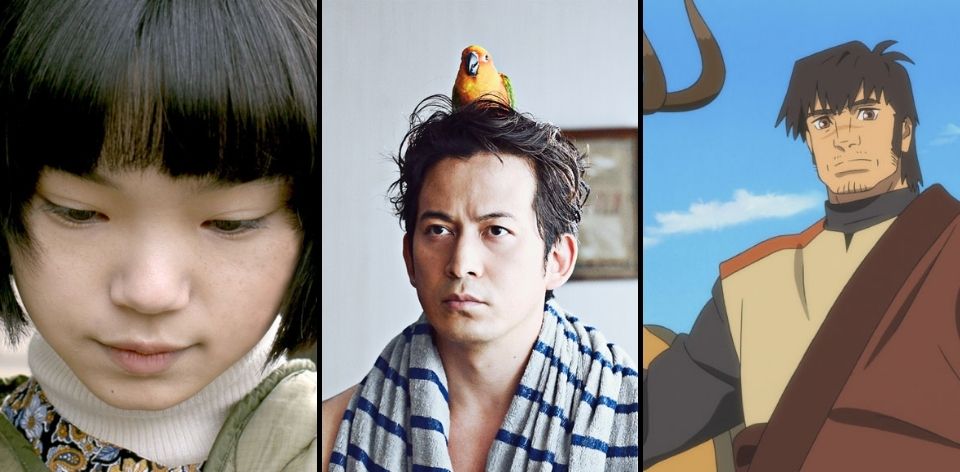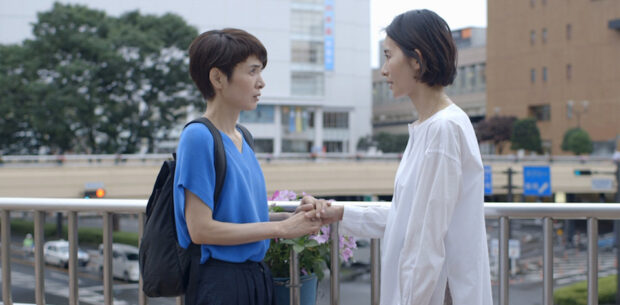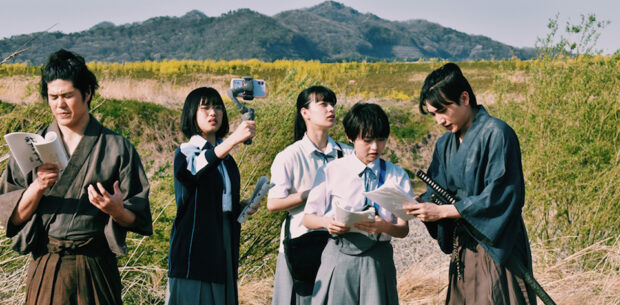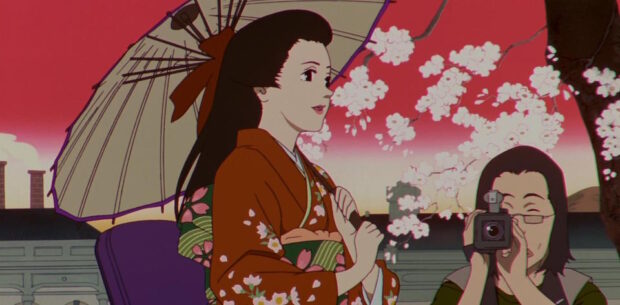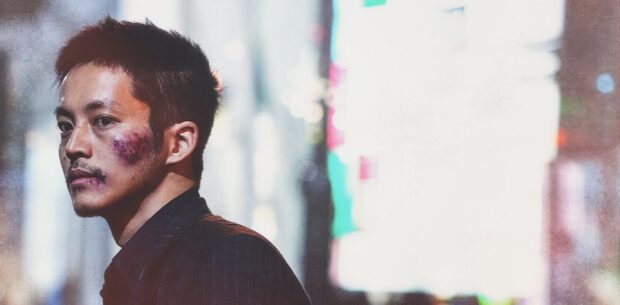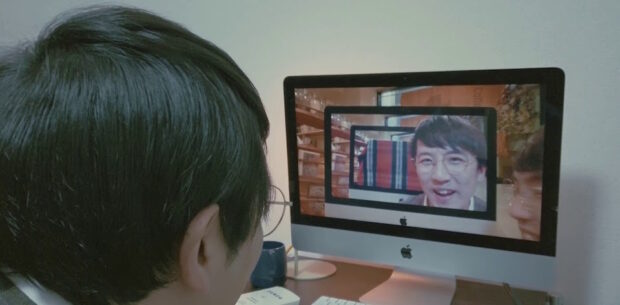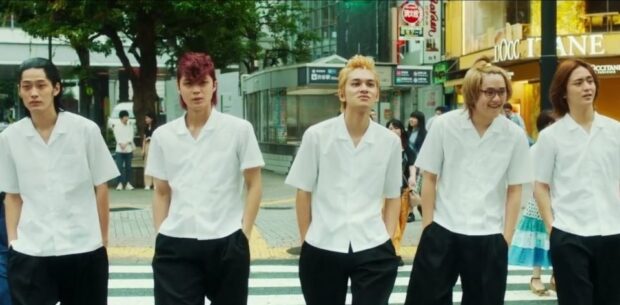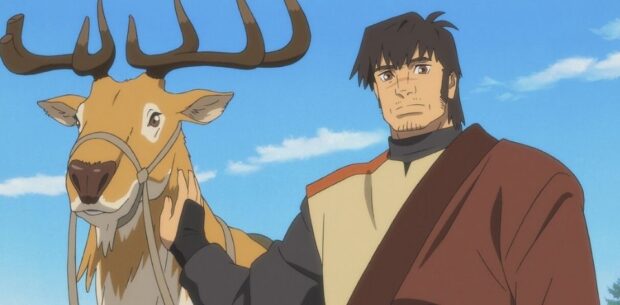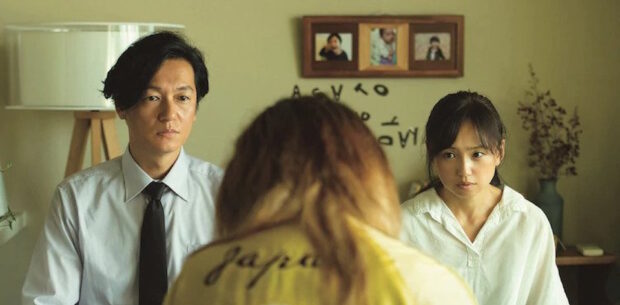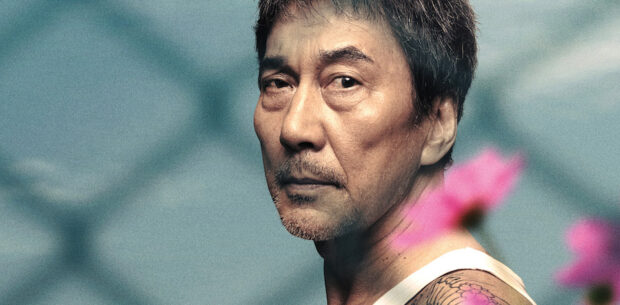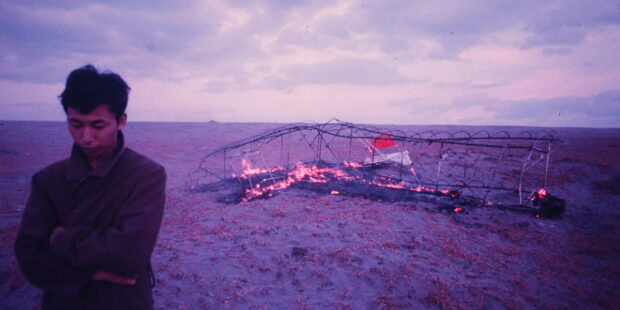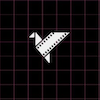One of the highlights of the Australian film festival calendar is the Japanese Film Festival. Back for a historic 25th year, it’s running around the country from from 28 October to 5 December.
As previously announced, JFF will bring us a few dozen of the hottest releases from the last 12 months. From the award-winning Ryusuke Hamaguchi and Naomi Kawase, there’s also sequels, manga adaptations, anime, some restored classics and a loving tribute to Satoshi Kon.
While everything on the program is worth watching, here’s some we reckon that you shouldn’t miss.
Wheel of Fortune and Fantasy
It’s a massive year for Ryusuke Hamaguchi. The three-hour Drive My Car debuted at Cannes this year, and in this film he trades longer forms for short stories in this Silver Bear winning anthology built around choices not made and lives unlived. From the 5-hour Happy Hour (2016) to the more compact Asako I & II (2018), his films often take a holistic view of intersecting human lives. This is no exception. Read our full review.
It’s A Summer Film
A genuinely heartfelt love-letter to film, or at the very least it’s a push against the idea that movies are disappearing. Soshi Matsumoto’s feature debut, following a career in commercial and short work, it’s a sci-fi film of sorts that sees a group of school friends attempting to make a samurai film, but discover one of their number is a time traveller from the future. IT’S A SUMMER FILM is exactly what it says: a film about the joys of summer in all their fleeting and life-changing moments. Read our full review.
Satoshi Kon: The Illusionist
When filmmaker Satoshi Kon died in 2010 following a brief battle with pancreatic cancer, he was 46. In his all-too-brief time on Earth, he left us with some of the most revered animated films of the last few decades: Perfect Blue (1997), Millennium Actress (2001), Tokyo Godfathers (2003), and Paprika (2006). Both a summary of an impressive career and a tribute to one of the driving forces of animation over the last few decades, French documentarian Pascal-Alex Vincent paints a portrait of someone who demanded high standards from others, and even higher from himself. Read our full review.

The Fable: The Killer Who Doesn’t Kill
One of those rare instances where the sequel outdoes the original. A standalone sequel that doesn’t require knowledge of the first one, it scarcely mattered that it’s been a couple of years since I’d watched the predecessor and completely forgotten the ending. This time, all the pieces come together quite nicely, and there are at least two large scale set-pieces that are world class. Strong hints at a third outing, so hop aboard the Fable train now. Read our longer review.
Last of the Wolves
The follow-up to The Blood of Wolves, a film that never really got past its stylistic excess. Which is where this sequel tops it in every way. Yes, there’s still a fair bit of blood, but there’s also a wicked driving narrative in this clash of wills. Ryôhei Suzuki adds a dangerous element that genuinely keeps us guessing, and it all comes to a satisfying conclusion in the vein of Infernal Affairs or the Outrage series. Or leaves the door open for even more explorations of this old-school battle without honour or humanity. Read our even more exciting full review.
Beyond The Infinite Two Minutes
If the time loop film is rapidly becoming our favourite sub-genre, then this one-take time loop screenlife film should be our next sub-sub-genre obsession. In the film, Kato (Kazunari Tosa) owns a small cafe where he discovers that his computer screen and TV are windows to a version of himself two minutes into the future. Only clocking in at 70 minutes, it all culminates in a genuinely clever denouement, where the ‘bad guys’ are ultimately overcome through a combination of foresight and comical use of the Droste screens. Read our full review.
Tokyo Revengers
Based on the ongoing manga series, here’s a time travelling high school tale with a bit of a difference. While compressing a lot of story into a short space — a story that is still ongoing in print and anime form — TOKYO REVENGERS still managers to convey its complex tale in a a self-contained package. Indeed, if this is your first experience with the franchise, you might even be tempted to explore the world a little further. Read our full review.
The Deer King
Co-directed by Masashi Ando (who worked on Studio Gibli films like Spirited Away and Princess Mononoke) and Masayuki Miyaji (Attack on Titan), this adaptation of Nahoko Uehashi’s novel series Shika no Ō is from the legendary Production I.G. A must-see for animation fans everywhere.
True Mothers
Fresh from shooting the official film of the Tokyo 2020 Olympics, modern master Naomi Kawase takes a measured approach to delivers another delicate character piece, filled with trademark beauty and lingering resonance. At its most basic level, Kawase’s and Izumi Takahashi’s script – based on a novel by Mizuki Tsujimura – concerns Satoko (Hiromi Nagasaku) and her husband Kiyokazu (Arata Iura) deciding to adopt a baby. Years later, Hikari (Aju Makita) comes forward as the child’s birth mother. Read our full review.
Under the Open Sky
As a character study, Miwa Nishikawa’s drama works incredibly well. Koji Yakusho once again finds himself on the wrong side of the law in this exploration of institutionalisation resulting from long-term imprisonment. He’s excellent in the role, bringing a world weariness and hair-trigger anger that never feels anything less than genuine.
Throw Away Your Books, Rally in the Streets
Playing as part of the Shuji Terayama retrospective, this is arguably one of his best known works, a radical anti-establishment piece that still stands as one of the greats of Japanese cinema history. It plays alongside Pastoral Hide-and-Seek (1974), the erotic art house The Fruits of Passion (1974), and his Oedipal and sensual Grass Labyrinth (1979).
The complete Japanese FIlm Festival program, dates and tickets are now available on their website.
JAPANESE FILM FESTIVAL AUSTRALIA runs from 28 October to 5 December 2021 in. You can check out our entire coverage, and previous years, at our JFF hub. Read more coverage of Japanese films from the silent era to festivals and other contemporary releases. Plus go beyond Japan with more film from Asia in Focus.

